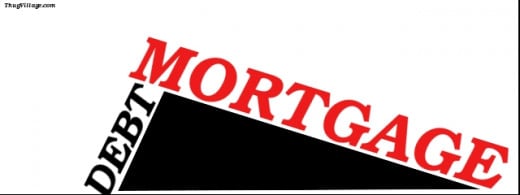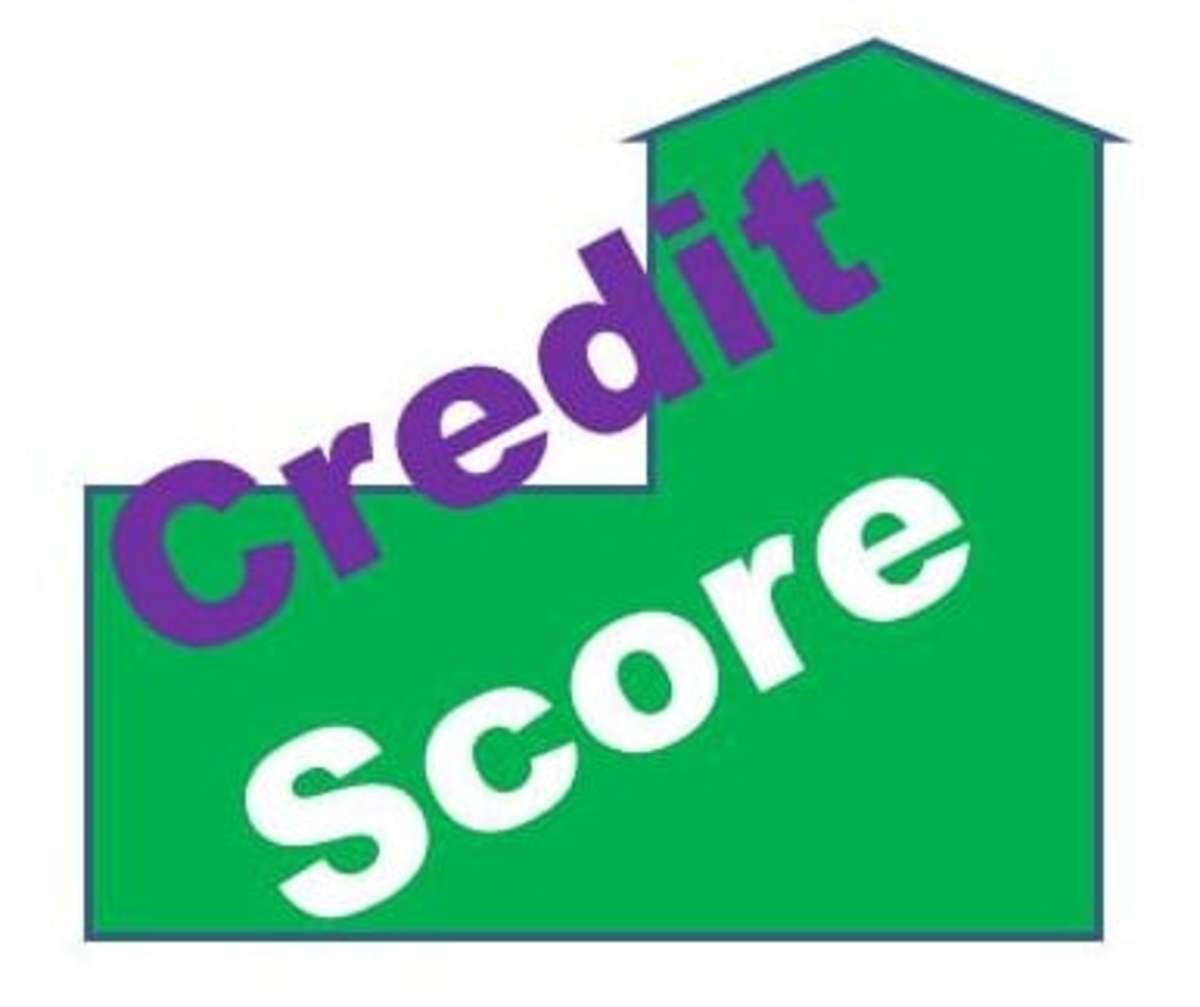Getting a Home Loan After Bankruptcy Difficult But Possible - Here is How You Do It

Life Happens!
Life happens! You lose your job, you lose your house, your car is repossessed, and then to keep the creditors from hounding you at all hours of the day, you file a bankruptcy. Well, what did they expect? It’s not like you’re a deadbeat. It’s not like you went to work and asked the boss to terminate you so you could go home and eat Bon Bons. No, you lost your job and no matter how much you want to pay your obligations, there is simply no way to do it. You don’t deserve to be harassed. Nevertheless, creditors hound you like a dog. So, you file for bankruptcy.
Type of Bankruptcy
| Description
|
|---|---|
Chapter 13
| A person repays at least a portion of their debts.
|
Chapter 7
| A person does not repay any of the debts.
|
Chapter 13 Bankruptcy stays on the records for up to seven years.
Chapter 7 Bankruptcy stays on the records for up to ten years.
After the Bankruptcy
After the bankruptcy, your credit scores plummet. Your credit history report shows that you have been 30 days late, 60 days late, 90 days late, then 120+ days late paying your debts… and the bankruptcy. This history remains on your credit history report for at least seven years for a Chapter 13 bankruptcy and up to 10 years for a Chapter 7 bankruptcy. Your credit history is labeled as a “bad credit history”. But, listen, you’re not bad; your credit history is bad. So, let’s separate you from your credit history. Let’s look at what we can do to change a bad credit history to a good credit history – the kind of credit history that can possibly get you a home loan.
The first thing you want to do is bring up your credit score. Now, I know you just had a bankruptcy and no one wants to loan money for you to buy a house... right now. But that’s only a stumbling block. You can overcome it in a couple of ways.
Get a small, manageable loan. Even a loan as small as $250 to $500 will serve a great purpose. The idea here is that you want to start building a "good" credit history. One way to do that is to get a loan that you know you can pay back in monthly payments. There are two types of loans that serve this purpose - secured loans and unsecured loans.
Collateral
Collateral is property or something of value that serves as a substitute for the money you have borrowed.
Installment Loans Used as Secured Loans
I have had clients buy a couch from a furniture store. The couch is the collateral. Your credit report will show this as an installment account. Paying installment accounts back in a timely manner is an excellent way to help build up your credit score. Be sure to purchase from an established store that reports all payments to the credit reporting bureaus.
Credit cards are examples of unsecured loans.
- Secured Loan – Secured loans are loans where you place something valuable like a car or other property as collateral for the loan. This property should be worth enough to cover the value of the loan. The creditor will tell you what they are willing to use as collateral. Then, if you should miss a payment, the creditor can take the property from you, sell it, and get their money back. That’s fair, right?
- Unsecured Loan – Unsecured loans are loans that are not secured by any property. They are more difficult to obtain. With this type of loan, the creditor has to trust that you will pay them back, because if you don’t pay them back, then all they can do is keep sending you notices until you pay.
But, we know you’re going to pay your loans back because the whole idea of getting a loan, secured or unsecured is so that you can start generating positive remarks on your credit history report. The better your credit looks at the time you apply for your home loan, the better the chance is that you will be approved.
I have seen people improve their score by 35 to 50 points in a year’s time - just by paying their current debt on time every time. So, that means that all you have to do is make timely payments and you could raise a credit score of 500 to 650 in as little as three years.
For more details of what score lenders look for, read my article titled, “What Score Do I Need to Get a Home Loan?
How Lenders Rate Credit Scores
Rating
| Score
|
|---|---|
Good
| 700-800
|
Average
| 650-699
|
Bad
| 549 or lower
|
The rating and scores are guidelines that lenders use as a starting point for considering your credit worthiness.
WARNING!
Lenders who specialize in lending money to people with bad credit have higher fees and less favorable terms for the borrower. In other words, it will cost you more to get the loan. Just make sure you pay close attention to the fees and the terms before you sign for the loan.
What Type of Home Loan Can You Get?
Well, depending on your credit score, there are several options available. There are actually online lenders who specialize in providing home loans to people with bad credit.
Work only with a credible and experienced home loan broker or agent. Ask family, friends, and co-workers for their recommendation to a loan broker or agent. Contact the loan broker or agent and ask about their experience in working with people with less than perfect credit. Listen to their response to hear whether or not they offer hope for a favorable outcome. Do not work with anyone who makes you feel bad about your credit history. Lenders who have a good attitude are willing to search for opportunities and solutions to help you toward the goal of getting a home loan.
Your best bet would be to try to get a Federal Housing Authority (FHA) loan or a Veterans Administration (VA) loan. FHA and VA loans are backed by the government. They are easier to qualify for and the cost of getting an FHA or VA loan is considerably less than other loans.
Traditional Lender
Think of traditional lenders as being banks such as Bank of America, Wells Fargo, Citibank, and Chase Bank to name a few.
How Soon Can You Apply for a Loan?
Generally, you have to wait at least two to three years after a bankruptcy before applying for a loan through a traditional lender. The alternative, easier loan programs, like FHA and VA loans have shorter time qualification standards. For example, FHA has compassion for people who have been afflicted by the recession and lost their jobs, so the FHA has added “economic events” to their list of “extenuating circumstances”. You can now claim extenuating circumstances to explain your low credit scores. With that as an explanation, the waiting time to apply for a loan is reduced from three years to one year.
The minimum qualifications for receiving an FHA loan are:
- Show a year of timely payments.
- Complete the mandatory housing counseling at least 30 days and no more than six months in advance of applying for a loan.
The minimum qualifications for receiving a VA loan are:
- Show a year of timely payments
- Have an average to good credit score of 650+
- Be a military veteran (Click to see VA Eligibility Chart)
Yes! You Can Get a Loan After Bankruptcy!
Don’t let a bankruptcy stop you from having the American Dream. Work on raising your credit score by paying your current bills on time and within a year you can start thinking about applying for a loan to purchase your home.
In the following video, Erica Sandberg, Money Expert explains what it takes to get a home loan after a bankruptcy.
"Real estate information; clear and simple!"
Marlene Bertrand is a Broker/REALTOR®.
Calif. Bureau of Real Estate Lic. #01056418.
LOAN RESOURCES:
Realtor.com is a consumer-based website dedicated to helping buyers buy homes and sellers sell homes. Their mortgage web page is filled with valuable information about home loans and home ownership. Also find resources to loan specialists and REALTORS®.
The Federal Housing Administration (FHA)
The FHA is a division of the U.S. Department of Housing and Urban Development (HUD). FHA insures loans on homes, lowering the risk lenders bear in the event a homeowner defaults on a loan. This web page provides general information about FHA.
This web page provides information that helps you understand the process of getting an FHA loan.
The VA helps people who have served in the military by providing a home loan guaranty benefit and other housing-related programs. VA guarantees a portion of the loan which enables the lender to provide veterans with more favorable terms. This web page provides information that helps you understand the process of getting a VA loan.
© 2013 Marlene Bertrand








